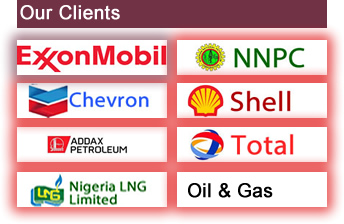
Femi Falana: It’s a shame we don’t know how much oil Nigeria is producing
Human Rights Lawyer, Femi Falana, said it was shameful that there was no accurate record of the volume of crude oil being produced in Nigeria daily.
Falana spoke at an interactive Media Roundtable on Impact of Non-payment of Capital Gain Tax (CGT) and Other Levies in the Oil and Gas Sector on the Socio-Economic Development of the country on Tuesday in Lagos.
The News Agency of Nigeria (NAN) reports that the roundtable was organised by the Socio-Economic Rights and Accountability Project (SERAP).
He said the recent report by the Nigerian Extractive Industries Transparency Initiative (NEITI) showed that the Nigerian National Petroleum Corporation (NNPC) and oil majors had yet to remit $22 billion and N481 billion to the Federation Account.
“Nigeria is the only oil producing country that does not know how much crude oil is produced and the government has refused to obtain the meter that would provide an accurate record.
“A study was done between 2011 and 2014 by the Nigerian Maritime Administration and Safety Agency (NIMASA) on how much unrecorded oil was taken out of Nigeria.
“In one port alone at Philadelphia, United States, the difference between the oil recorded that was taken out from our port and the oil that arrived there was about 60 million barrels valued at $12.7 billion dollars,’’ Falana said.
He said that the present administration of President Muhammadu Buhari had been recovering stolen funds but they needed to do more to ensure that the humongous amount of money stolen from the oil sector was recovered.
According to him, these funds can be deployed for education, health and infrastructural development in the country, especially as over 13 million children are currently out of school.
He urged SERAP to challenge the non-implementation of the Deep Offshore and Inland Production Act which ought to have been enforced since 1993 but had been jettisoned by subsequent administrations.
“We must go to the Department of Petroleum Resources (DPR) to ensure that we get the appropriate information as enshrined in the Freedom of Information Act (FOI),’’ he said.
The Roundtable also witnessed the unveiling of an 18-page Report entitled: “The Impact of Laws and Practice on the Taxation of Capital Gains (Oil and Gas Asset Sales in Nigeria 2005-2015).’’
The report was authored by two taxation consultants, Bimpe Balogun and Azeez Olatoye.
The report said: “A review of issues arising on CGT carried out by the Ministry of Finance, Oil and Gas Unit, in 2012 revealed that between 2006 and 2012, oil assets worth over $3.5billion, and $12.8billion by 2016, were divested by major oil companies.
“The Nigerian oil and gas sector has in the last 10-years witnessed its fair share of divestment by international oil companies, such as Shell, Total, Eni, and Chevron.
“These oil companies have divested their interests in oil blocks and marginal fields, many of which are Nigerian onshore assets.
“Meanwhile, the information received from the Federal Inland Revenue Service (FIRS) for the period between 2005 and 2015 revealed that CGT returns were filed for a total disposal of $8.6billion.’’
According to the report, this has resulted in huge losses in revenue to Nigeria as it gives the IOCs the leeway to file lower CGT returns.
It therefore called for an upward review of the CGT rates in Nigeria which was currently 10 per cent compared to the average of 16 per cent obtainable in the African continent.
The report also called for harmonisation of revenue figures by the FIRS, DPR and NNPC to improve accountability and transparency in the oil and gas industry.


